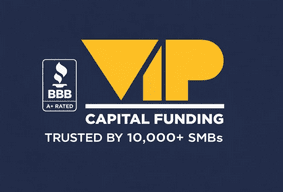Choosing capital is not just about approval — it is about alignment.
Established business owners do not compare funding options solely by rate or speed. They evaluate structure, duration, revenue alignment, and long-term impact before making a decision.
Understanding How Business Owners Compare Working Capital Options provides a framework for disciplined evaluation that supports both stability and growth.
Capital selection is strategic infrastructure.
Moving Beyond Surface-Level Comparisons
Many businesses initially focus on:
-
Interest rates
-
Approval speed
-
Maximum funding amounts
-
Basic qualification criteria
While these metrics matter, they do not capture the full picture.
Sophisticated operators ask deeper questions:
-
Does repayment align with revenue cycles?
-
Does duration match the purpose of the funding?
-
Does this structure preserve liquidity buffers?
-
How will this decision affect future borrowing capacity?
Capital decisions influence operational flexibility far beyond the initial funding event.
Aligning Structure With Revenue Rhythm
Revenue rhythm varies across industries.
Contractors experience milestone-based payments. Retailers operate on seasonal peaks. Service firms manage receivable cycles. Manufacturers deal with production lead times.
Options such as Working Capital provide flexibility when aligned with these patterns.
When repayment structures ignore revenue rhythm, even profitable businesses can experience strain. Alignment minimizes disruption.
Comparing Fixed vs Performance-Based Models
A common comparison point involves fixed repayment schedules versus proportional repayment models.
Performance-aligned structures like Revenue-Based Funding adjust with deposit activity, reducing pressure during temporary slowdowns.
Fixed schedules may offer predictability, but they require stable revenue consistency.
Established business owners evaluate which model best mirrors their operational flow before committing.
Structure drives sustainability.
Duration and Purpose Matching
Duration is frequently misunderstood.
Short-term capital may be appropriate for:
-
Seasonal inventory cycles
-
Marketing campaigns with defined timelines
-
Contract mobilization expenses
Longer-term structures may support:
-
Infrastructure upgrades
-
Market expansion initiatives
-
Operational scaling
Educational resources such as Short-Term vs Long-Term Business Capital Explained help clarify duration alignment.
When duration mirrors purpose, flexibility increases.
Evaluating Operational Disruption
Capital comparison also includes operational impact.
Questions include:
-
How complex is the underwriting process?
-
Will documentation requirements delay opportunity capture?
-
Does repayment require manual adjustments during slower cycles?
-
Are communication channels transparent?
Industry coverage continues to highlight how structured capital support helps SMBs manage seasonal cash-flow shifts while maintaining operational continuity (https://finance.yahoo.com/news/vip-capital-funding-rolls-early-140000814.html).
Disruption carries hidden cost.
Preserving Margin Integrity
Margin protection is central to comparison.
Businesses should evaluate:
-
Total repayment relative to projected revenue
-
Impact on operating margins
-
Liquidity reserve preservation
-
Exposure concentration
Comparing only headline rates can obscure structural inefficiencies.
Strategic comparison evaluates net impact — not surface-level metrics.
Assessing Partner Reliability
Capital structure alone does not determine outcome. Execution reliability matters equally.
Business owners frequently review Verified Client Funding Experiences before finalizing funding decisions.
Consistency, transparency, and defined expectations reduce uncertainty.
Trust reduces risk.
Comparing Capital as a Strategic Exercise
Sophisticated operators treat funding evaluation as part of strategic planning.
They:
-
Model revenue projections under multiple scenarios
-
Stress test repayment coverage
-
Review exposure ratios
-
Compare structural flexibility
-
Consider long-term strategic positioning
This methodical approach transforms comparison from a transactional exercise into a governance process.
Industry commentary reinforces the importance of understanding approval factors and structural alignment when evaluating financing options (https://modernmarketingpartners.com/2025/12/23/key-factors-that-determine-financing-approval-for-small-businesses/).
Education strengthens discipline.
Evaluating Capital Through a Risk-Adjusted Lens
Experienced business owners rarely evaluate capital in isolation.
Instead of asking, “What is the cost?” they ask, “What is the risk-adjusted impact?”
This involves assessing how a funding structure performs under varying revenue scenarios. If revenue grows as projected, repayment may feel manageable. If revenue softens temporarily, does the structure still preserve operational stability?
Risk-adjusted evaluation helps determine whether a funding option strengthens resilience or increases exposure.
Capital comparison becomes more precise when viewed through this lens.
Understanding Cash Flow Sensitivity
Cash flow sensitivity varies by industry and business model.
Companies with subscription-based or recurring revenue models may tolerate fixed repayment schedules more comfortably. Businesses dependent on seasonal demand or project-based income may require more flexible structures.
When comparing working capital options, leaders should evaluate:
-
Percentage of revenue tied to predictable recurring streams
-
Variability of month-to-month deposits
-
Concentration of revenue among key clients
-
Timing of receivables versus operating expenses
A funding structure that ignores these variables may create friction.
Alignment reduces sensitivity.
Comparing Capital Impact on Strategic Initiatives
Capital decisions often influence broader strategic initiatives.
For example, funding used to support marketing expansion should be evaluated alongside projected return on investment. If repayment intensity restricts reinvestment in high-performing campaigns, growth momentum may slow.
Similarly, capital deployed for operational scaling should preserve sufficient liquidity for follow-up investments.
Working capital comparison should therefore include:
-
Interaction with marketing strategy
-
Impact on hiring flexibility
-
Effect on inventory cycles
-
Compatibility with expansion timelines
Capital does not operate independently. It influences execution capacity.
Protecting Liquidity Buffers
Liquidity buffers are essential for stability.
When comparing funding options, business owners should assess how repayment structures affect cash reserves. A structure that absorbs too much short-term liquidity may eliminate the cushion needed to manage unexpected expenses.
Maintaining reserves supports:
-
Emergency preparedness
-
Vendor relationship consistency
-
Payroll confidence
-
Strategic flexibility
A disciplined comparison framework ensures that working capital strengthens — rather than erodes — these buffers.
Avoiding Decision Fatigue in Capital Selection
Capital evaluation can become overwhelming when too many variables are considered simultaneously.
Established businesses reduce decision fatigue by standardizing evaluation criteria. Instead of reviewing each offer in isolation, they measure all options against a predefined checklist.
This may include:
-
Revenue alignment
-
Duration matching
-
Margin protection
-
Liquidity preservation
-
Long-term flexibility
Standardization simplifies comparison and reduces emotional influence.
When criteria remain consistent, capital decisions become clearer.
Considering Long-Term Positioning
Capital choices affect long-term positioning.
Funding structures influence future eligibility, credit profile strength, and leverage capacity. Even if an option appears attractive in the short term, it should be evaluated in light of future expansion plans.
Business owners should ask:
-
Will this structure restrict future borrowing?
-
Does it preserve flexibility for additional growth phases?
-
How does it affect overall leverage ratios?
Strategic comparison ensures that present decisions do not limit future opportunity.
Creating a Governance Habit Around Capital
Ultimately, comparing working capital options strategically is less about selecting a single product and more about building governance habits.
When businesses institutionalize disciplined comparison practices, funding becomes integrated into overall financial management.
Over time, this habit produces:
-
Greater stability
-
Reduced volatility
-
Improved margin consistency
-
Stronger lender relationships
-
Enhanced growth predictability
Capital becomes predictable infrastructure rather than a reactive solution.
Building a Repeatable Comparison Framework
Over time, successful businesses create a repeatable internal checklist for capital evaluation.
This checklist may include:
-
Defined funding objective
-
Duration alignment review
-
Revenue coverage stress test
-
Margin impact analysis
-
Liquidity reserve confirmation
-
Long-term optionality assessment
By standardizing comparison criteria, businesses reduce emotional decision-making.
Capital becomes predictable infrastructure rather than a reactive solution.
For business owners evaluating structured working capital options through a disciplined lens, structured eligibility review provides clarity on available pathways and appropriate alignment.
Those prepared to compare options strategically can Begin Your Confidential Funding Review to assess next steps responsibly.








